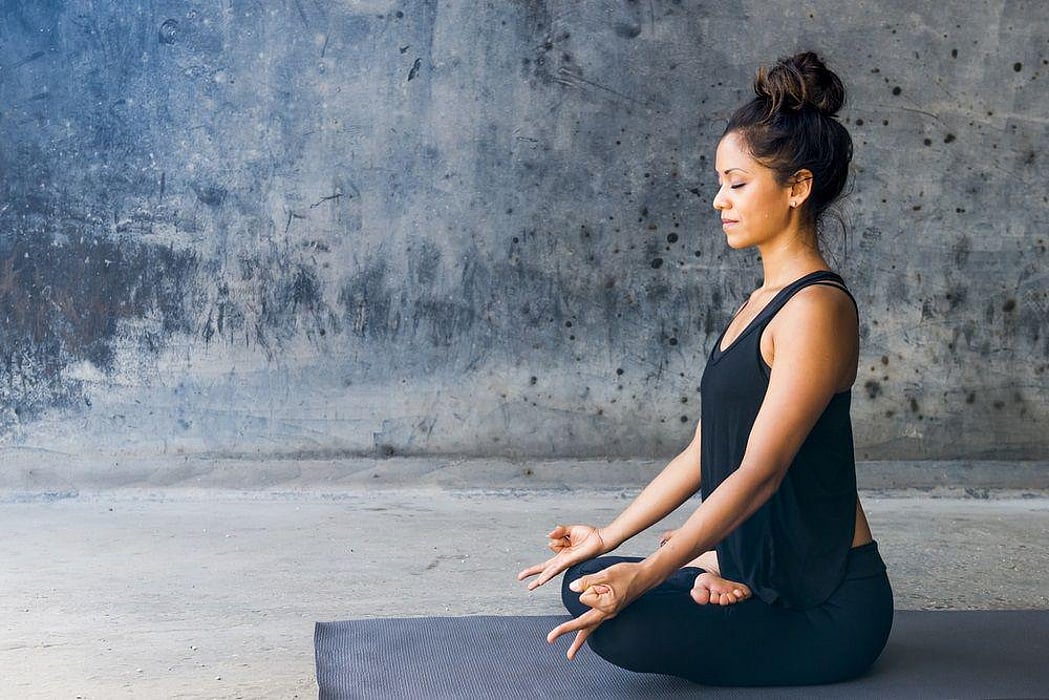Meditation and Health

What is meditation?
Do you ever feel like your brain is too stuffed with thoughts? Between the errands that you need to do tomorrow, the lingering issues from yesterday, and the work in front of you today, it can be hard to find room for a positive emotion or a moment of peace. Meditation is a mental exercise that tries to tune out the mental clutter, giving the brain and body a chance to relax. A recent national government survey suggests that over 36 million people in the United States have tried meditation at least once in the previous year.
How does it work?
In simplest terms, meditation can help protect you from the effects of stress. In normal life, stress triggers hormones that will increase your heart rate, raise your blood pressure, and generally put your body on high alert. But if you can relax your mind, your body will make fewer of these hormones, giving you protection from the harmful effects of stress.
What are the health benefits?
People who meditate say that it helps with a wide variety of stress-related problems, including chronic pain, anxiety, insomnia, and depression. Many people who have chronic illness such as cancer or heart disease say that meditation helps them manage their symptoms and cope with their illness. For example, a small Swedish study of cancer patients found that most, but not all, subjects felt better after an 8-week meditation course. Reported benefits included greater calm, better sleep, more energy, and less pain.
How do I do it?
Find a quiet place free of distractions. Most people meditate while sitting on the floor, but you can also sit in a chair or lie down -- whatever feels comfortable. With your eyes closes, start taking deep, gentle breaths. To help clear your thoughts and move to a meditative state, repeat a simple word or phrase in your mind. This is your "mantra." You can also try focusing your mind on a single image, a symbol, or your breathing. Try to ignore any other thoughts that come into your head. You should feel yourself slip into a state of pleasant relaxation. If you're a beginner, you may find it hard to keep your mind clear. Don't get down on yourself; this takes practice. You might try starting with short, five-minute sessions. As you become more familiar with the process, you can gradually build up to 20 minutes or longer. To get the full benefits, try doing it every day.
Should I take a class?
A lot of meditators are self-taught. Still, a class can be helpful for beginners. An experienced teacher can help you find an approach that works for you. Look for classes at the YMCA, a local hospital, or through a local adult education program. There are also many books, audio and video tapes on meditation techniques that can help you get started.
References
National Center for Complementary and Alternative Medicine. Meditation. http://nccam.nih.gov/health/meditation/
National Center for Complementary and Alternative Medicine. Meditation: an introduction. http://nccam.nih.gov/health/meditation/overview.htm
Centers for Disease Prevention and Health. Meditation and health. http://www.cdc.gov/features/meditation/
Meditation Statistics. The Good Body. https://www.thegoodbody.com/meditation-statistics/
Kvillemo P and R Branstrom. Experiences of a mindfulness-bases stress-reduction intervention among patients with cancer. Cancer Nursing.
Image credit: Shutterstock
Related Posts
Sex and Stress
Given the Herculean task modern couples face each day as they race between...
Pirfenidone Promising for RA-Linked Interstitial Lung Disease
TUESDAY, Oct. 4, 2022 (HealthDay News) -- Pirfenidone may slow the rate of...
¿Cuándo es una fractura potencialmente letal para un adulto mayor?
MARTES, 11 de octubre de 2022 (HealthDay News) -- Unos investigadores que...
This Summer, Know Your Risk for Insect Sting Allergy
MONDAY, June 19, 2023 (HealthDay News) -- If you're dreaming of the perfect...
